Enable, use, and disable Safe Mode in Windows 8
If you have installed the Windows 8 Developer Preview version released by Microsoft and encounter some problems when launching, this is also obvious in beta stage software. In the Windows operating system versions, usually we will boot into Safe Mode to try to fix the problem.
However, by default this mode is not enabled on Windows 8, users need to do this manually. The following article will show you how to enable Safe Mode, boot into, and then disable it.
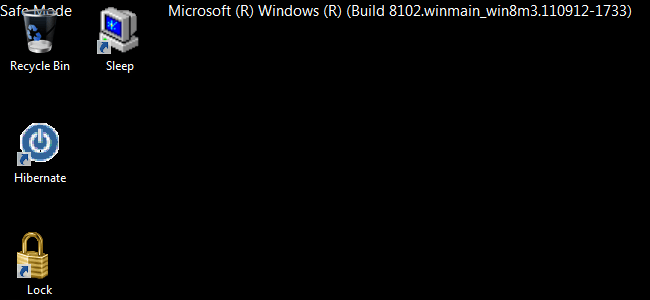
1. Activate
First, to enable Safe Mode, open the Command Prompt window. There are many ways to do this through the Metro interface, Windows 7 Start menu, or Windows Explorer to search for the ' cmd.exe ' command.
To use Metro UI, open the Desktop from the Metro Start screen, move the mouse pointer to the Start icon and select Search :

Scroll down and enter cmd in the Search box, the results will show up on the left. Right-click ' cmd.exe ':

This item will be highlighted and display the Advanced icon in the lower right corner of the screen. Click Advanced and select Run as administrator from the popup menu.
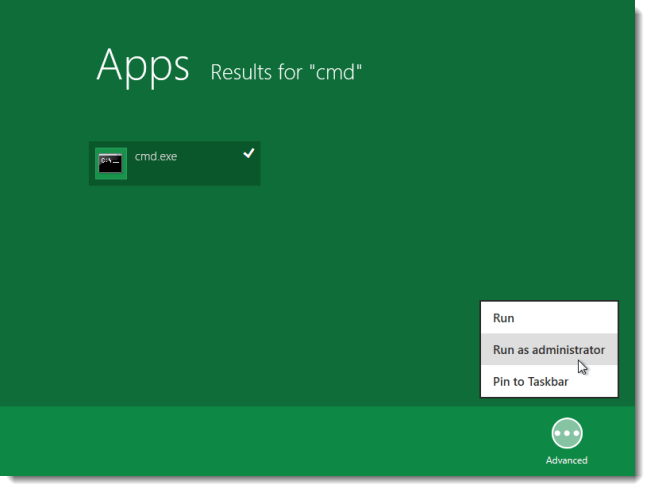
If you don't like the Metro interface, you can activate the Start menu in Windows 7 and use it to search for the ' cmd ' command. Right-click ' cmd.exe ' select Run as administrator from the popup menu.
Note: Start menu in Windows 7 is useful if you want to open cmd.exe or msconfig.exe while in Safe Mode using Metro UI Search function. As tested, we could not find cmd.exe and msconfig.exe via Metro UI in Safe Mode. Another way is to use Windows Explorer and search in C: Windows .
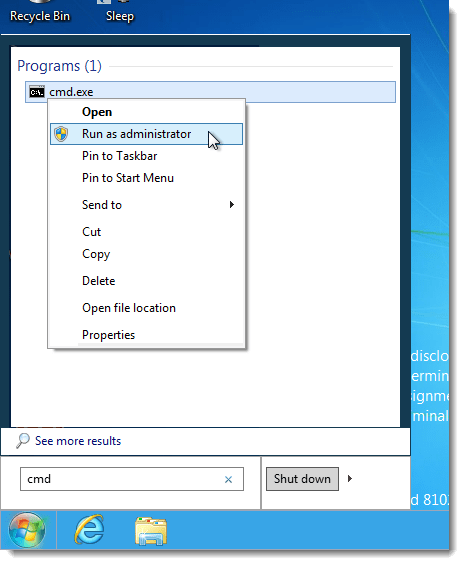
If the warning User Account Control appears, click Yes :
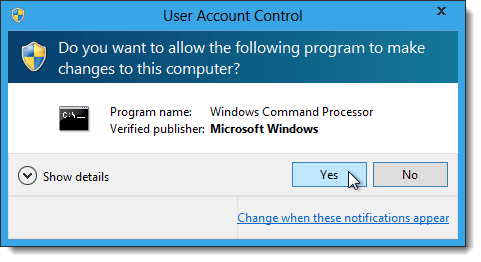
At the command prompt, enter the command line below and press Enter :
bcdedit / enum / v

Enter the following command with a space at the end. Absolutely DO NOT press Enter:
bcdedit / copy

This is only part of the command line needed. To be more complete you need to copy the identifier entry from the Windows Boot Loader . Right-click on the window and select Mark from the popup menu:
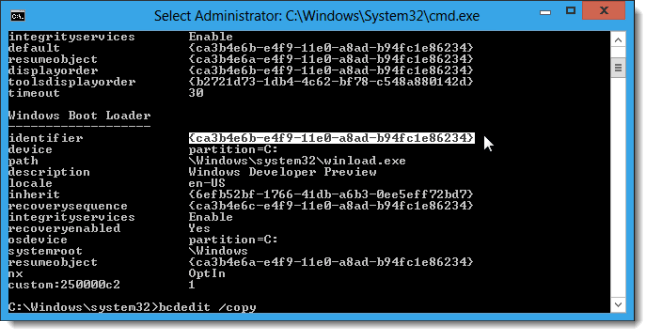
Then hold down the left mouse button and highlight the definition next to the identifier (including parentheses). Press Enter to copy it:
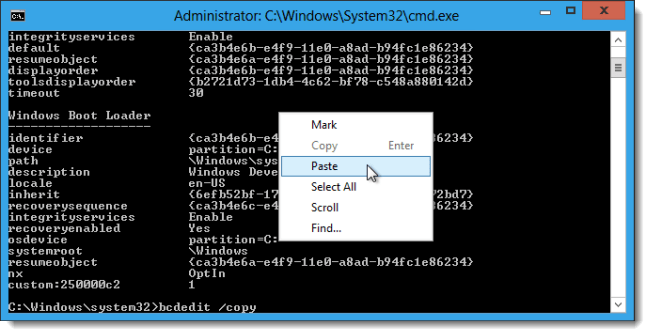
Finally right-click and select Paste to paste the above code into the command bcdedit / copy .
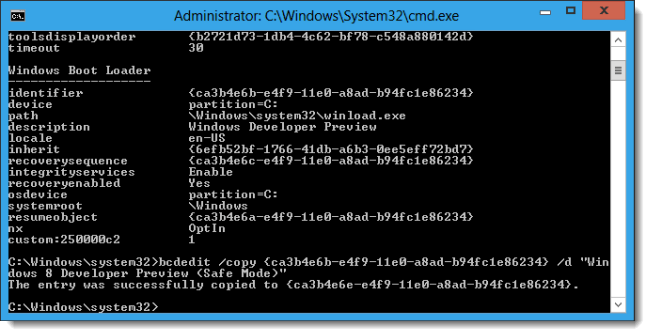
Press a space and type the 'Windows 8 Developer Preview (Safe Mode) / d' at the end of the line. Press Enter to execute the command:
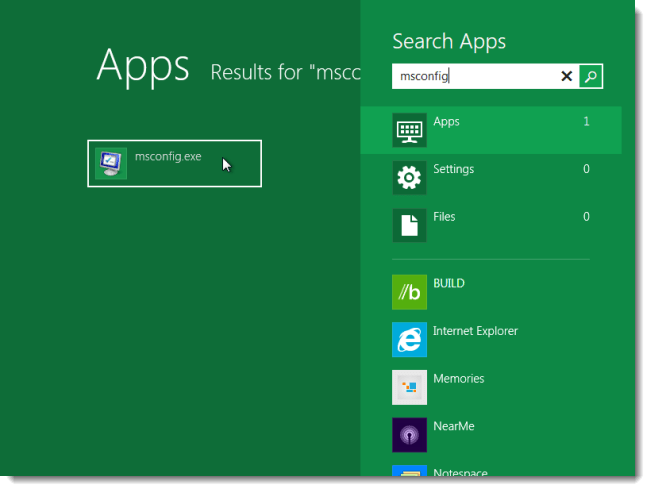
Close this command prompt window. Open msconfig.exe (similar to cmd.exe). You do not need to run as an administrator.
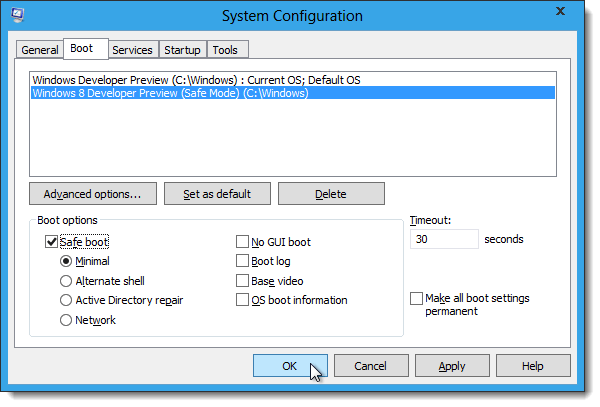
To get Safe Mode when starting, select Windows 8 Developer Preview (Safe Mode) in the list of Boot tab and tick the Safe boot box. Keep the default Minimal option below. So Safe Mode will automatically run when you restart your computer:

2. Use
Click Restart when asked if you want to try the result:

Sometimes Safe Mode may not automatically run, instead the option screen displays whenever you turn on the device. Select Windows 8 Developer Preview (Safe Mode) to enter Safe Mode:

Windows will boot directly into the Desktop screen, not the Metro interface as usual. And the familiar Windows Help and Support window also appears to provide information about Safe Mode. Now you can start your repair work.
3. Disable Safe Mode
Next, if you want to delete the Safe Mode option at startup, reopen the cmd.exe window as administrator as part 1 . Still with the above note, you may need to use the Start menu like Windows 7 to search for cmd.exe in the C: Windows folder of Windows Explorer.
Enter the following command, add a space at the end and DO NOT press Enter:
bcdedit / delete
Similar to the above instructions, use the Mark menu to copy the contents of the identifier , then paste it into the command line bcdedit / delete and press Enter to execute:

A message appears indicating the activities were successful. Or you can turn off Safe Mode by going to msconfig.exe (this is why we recommend using the Windows 7 Start menu to find this dialog) and uncheck Windows 8 Developer Preview (Safe Mode) , then restart the computer.